Position statement
- One of the main reasons is the notion by American companies to retain local their practices in doing businesses.
- This according to Bolman and Deal (2008) come from the belief that their pattern of business is quite unique.
- It is an assumption that this notion will work for them overseas.
- Besides, another reason why they do not adapt is due to their marketing approach of standardization versus adaptation.
- Calvin (2007) cites that standardization as a marketing approach is an international strategy that conform a marketing practice to fit across different cultures.
- Particularly, it forms a major baseline and therefore uses the model that businesses use widely to promote products.
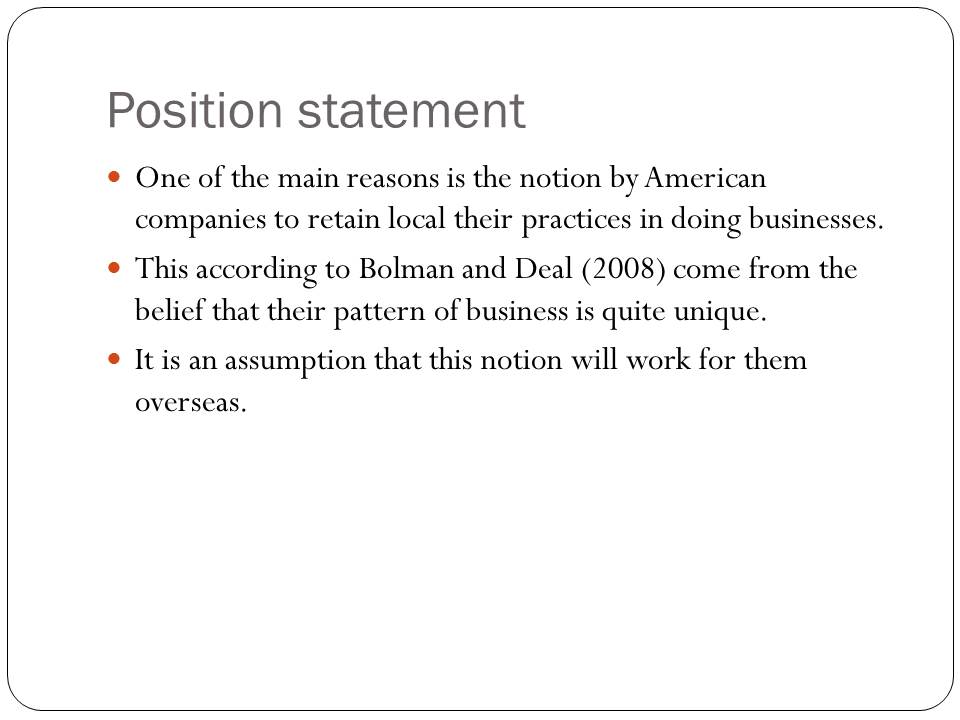
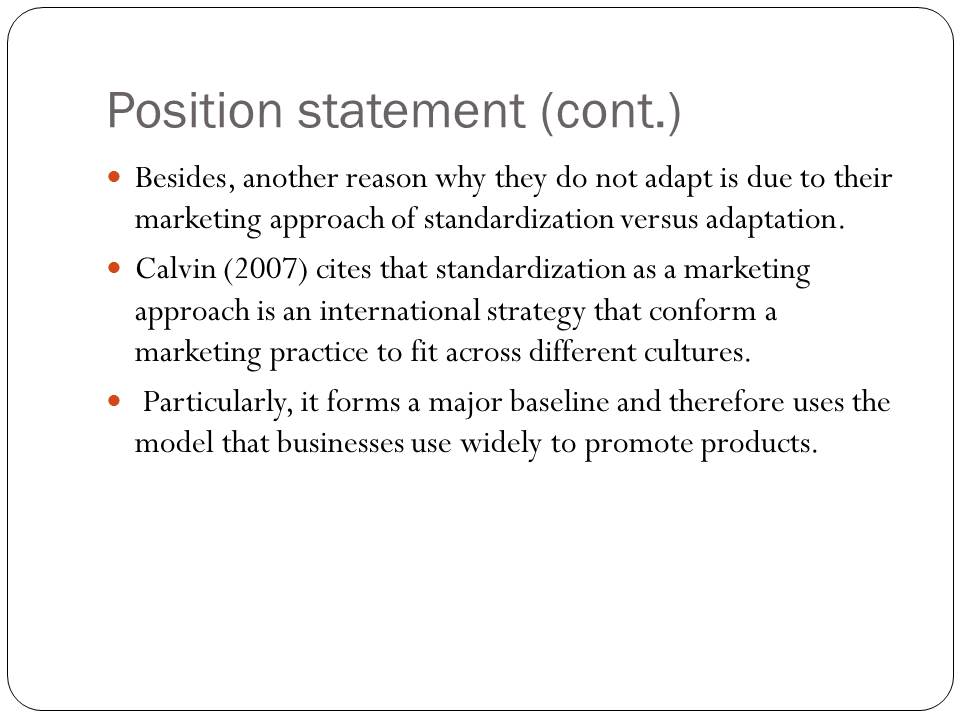
Eclectic Theory
Moreover, based on eclectic theory, mergers with businesses overseas among US companies has been deemed to attract huge challenges.
These challenges include political, social and environmental challenges.
Astorino (2009) cites that to curb this, many US companies prefer to be self establish thereby underestimating operational costs.
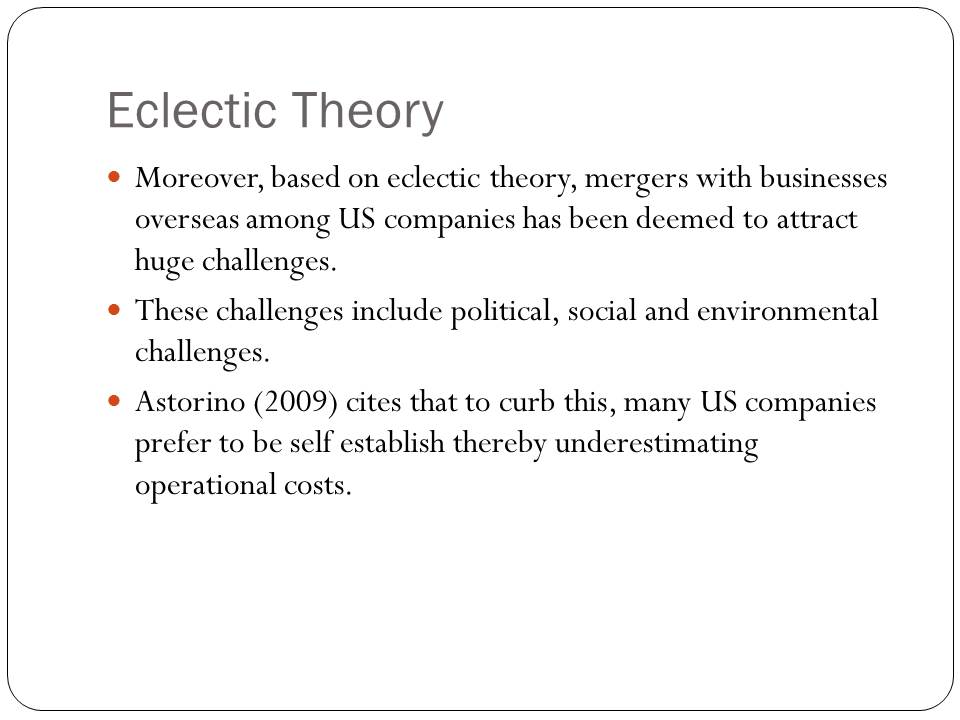
Adaptability to local practices
No, US companies are not adaptive to local practices.
One of the reason why they do not adapt is due to the standardization versus adaptation approach in marketing.
Particularly, it forms a major baseline and therefore uses the model that businesses use widely to promote products.
Besides, based on eclectic theory, mergers with businesses overseas among US companies are normally faced with huge challenges.
Chava and Nachmias (2007)cite that to curb this, many US companies prefer to establish themselves thereby underestimating operational costs.
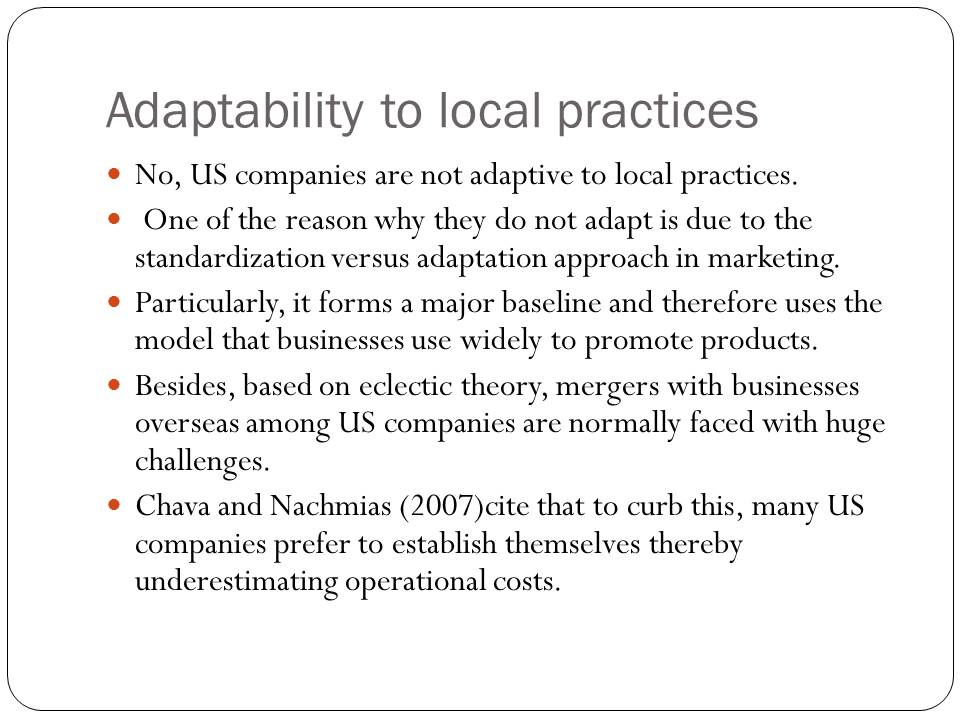
Organizational behaviors
Moreover, while evaluating the demands of organizational behaviors and its implications to the expanding to overseas markets, Chava and Nachmias (2007) indicate that there is need to develop holistically acceptable cultures that factor all stakeholders.
Globalization has been cited to promote diverse consumerist patterns. This could perhaps be a reason for the US Companies to stick to their business patterns.
Organization culture formation constitutes a congregation of key beliefs, perceptions, and particularistic orientation of the different internal systems in the management.
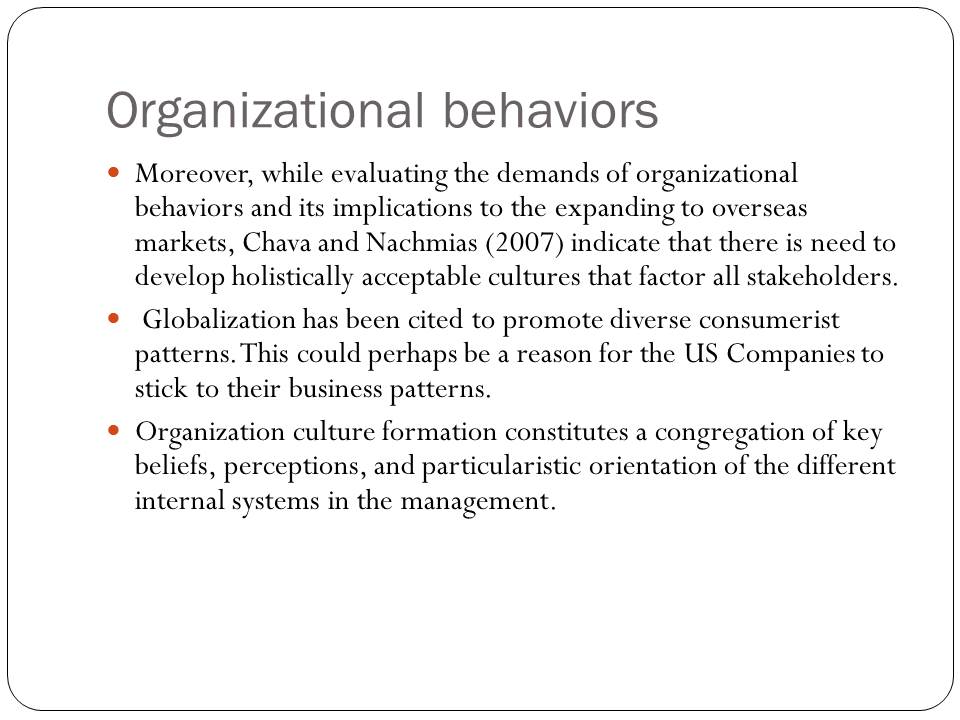
Organizational culture
Organization’s culture has over the years remained one of the key elements that determine how well American companies adapt local practices overseas.
They believe that notion of working through the existing culture to replace the culture ultimately worked wonders in the company.
Though this consideration as Calvin (2007) indicates is considered to be vague for lack of clear outline and an emphatic framework, its inclusive nature is seen to have raised the ability of the company in meeting its strategic demands.
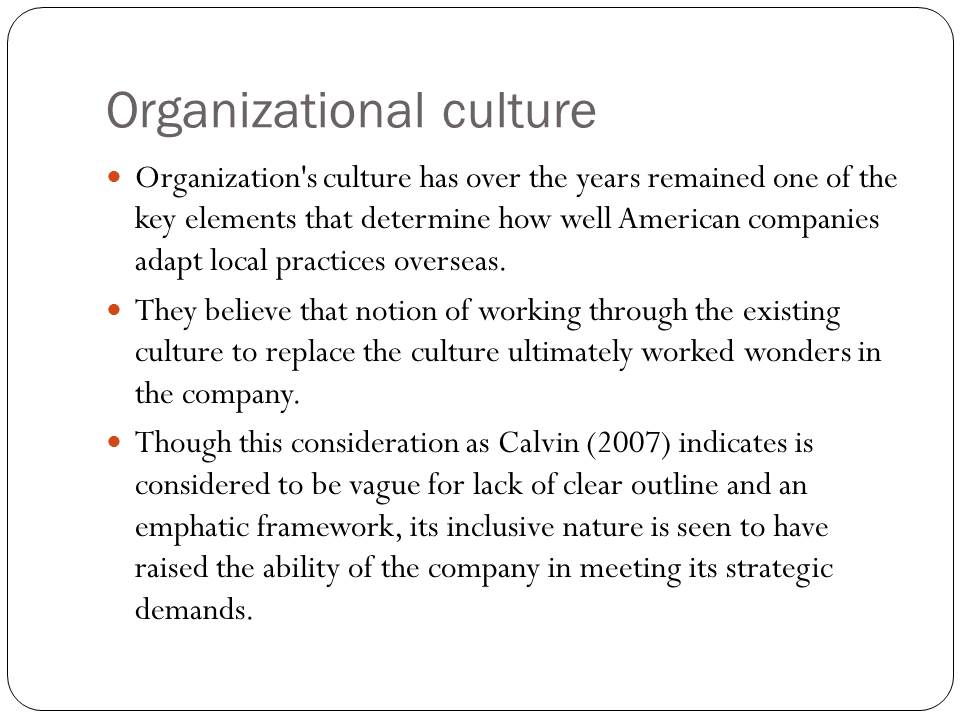
References
Arquilla, J. (2007). Of networks and nations. Fall and Winter, 17(1),199-113.
Astorino, D. (2009). Five roadblocks to successful acquisition integration. Executive Insights, 24(2), 2-4.
Bolman, G. & Deal, T. (2008). Reframing organizations: artistry, choice, and leadership. San FranciscoJossey Bass.
Calvin, R. (2007). Sales management demystified: a self-teaching guide. London: McGraw-Hill Professional.
Cascio, W. (2006). Managing human resources: productivity, quality of work life, profits. Boston: McGraw Hill.
Chava, F. & Nachmias, D. (2007). Research Methods in the Social Sciences. New York: Worth Publishers.